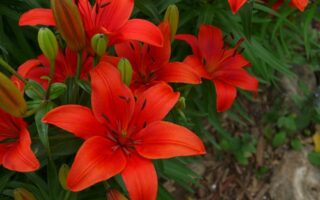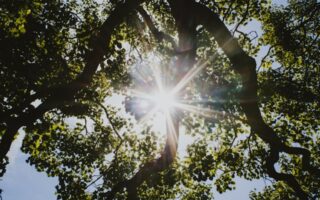On December 12, 1941, Thomas Merton entered the Abbey of Our Lady of Gethsemani as a postulant. On that occasion he wrote a poem titled, Poem for My Friends, Dec 12—13. The poem expresses Merton’s view of monastic life as he stands on the edge of entering the silence. One line in the poem captures my imagination. Merton writes,
More than we fear, we love the holy desert
Where separate strangers, hid in their disguise,
Have come to meet by night the quiet Christ.
Thomas Merton
This line came to my mind as I recently struggled with dark emotions swirling beneath the surface of my quiet, well ordered life. I occasionally encounter these emotions during busy semesters, but it is on breaks between semesters that these emotions can get a hold of me and color my world.
I come into the office regularly throughout my breaks from teaching. I encounter few people here during breaks and often I don’t see or talk to anyone. This space and quiet allows my writing to unfold in creative and interesting ways, allows me to shape the courses I teach with thought, meaning, and creativity, and allows me to pray, and to open my heart to God. The gifts of my summer solitude are plentiful, yet it is also true that the space and quiet I cultivate allows the freedom for hidden, buried, wounded emotions to emerge and come to light. This last aspect of solitude is the aspect I think we all would like to avoid and when I experience these emotions they are accompanied by waves of doubt about how I am spending my days. I am tempted to leave the space and quiet behind, to run, to busy myself with tasks that are not mine to do, to lose myself in entertainment, or shopping, or some other activity that might occupy my mind and help me to move beyond these emotions.
There is a deeper wisdom within me though that beckons me to stay. My soul has a story to tell, but only if I listen. I can try to move to the surface of life and repress my buried emotions, but I know that these hidden feelings, hidden aspects of myself will only heal if allowed to stay for a time in the light. They are my emotions to face, emotions that might help me to see more fully who I am and who I am called to be. Bound up with my painful emotions are vulnerable gifts, aspects of myself I have abandoned, forgotten, or have yet to discover. If I don’t listen to the pain, I won’t discover the joy. Listening in solitude opens new paths of relating to myself, God, and others and though it can be scary to follow uncertain winding paths, I am learning to trust that these new ways forward lead to healing, peace, and wholeness in myself that then overflows to others.
In Merton’s poem for his friends he makes a connection between the monastery he is entering and Nazareth, where Christ lived as a boy. In a compelling book, Hidden in God: Discovering the Desert Vision of Charles De Foucauld, Bonnie Thurston discusses three locations in which our spirituality is lived: Nazareth, the desert, and public life. Throughout our lives we journey in, out, and through these spiritual landscapes and each has its tasks, gifts, and challenges. Of Nazareth, Thurston writes,
Nazareth is the place of our hidden, secret life, the veiled life known to God alone. It is a life that is so deep that there are aspects of it that are, if not hidden from, at least mysterious even to ourselves. If Merton is correct, and I think he is, if we are to be saints, we will be formed by our Nazareths, our hidden and unseen places. Part of the task of maturity for us is to discover and become comfortable with our “unseen places.”
Hidden in God: Discovering the Desert Vision of Charles De Foucauld
Bonnie Thurston
We may not wear habits as the monks do, but we all wear disguises. Sometimes these disguises work so well we fool ourselves. We believe the disguises of competency, order, and efficiency we wear in the world. We hide behind masks of expertise, reason, and ideology. We might even hide behind a false humility that is afraid to risk living from and exposing our gifts and talents. But in the solitude of night, Christ, who emptied himself to share our silence, offers us the invitation to come and stay where he is staying, in our wounded hearts.














